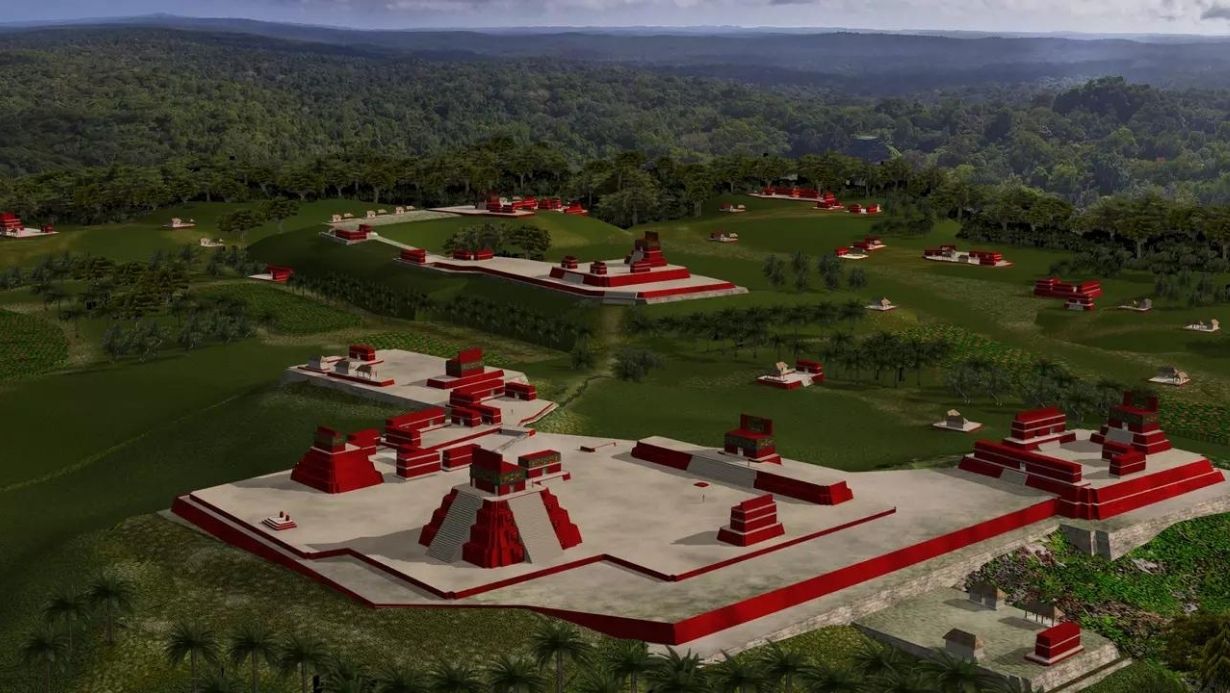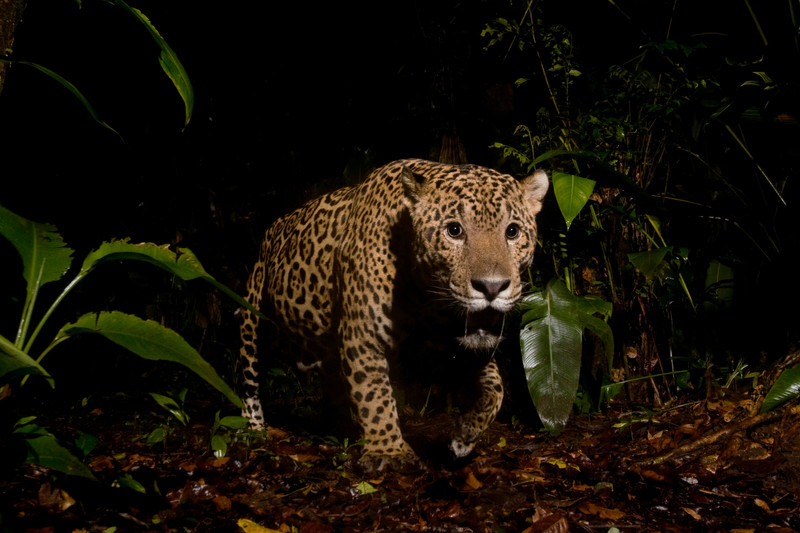Latin America
Related: About this forumRemarkable discovery: Czech archeologists unearth 3,000-year-old Mayan city
A research expedition utilized artificial intelligence to unveil a Central American settlement that thrived primarily between 850 BC and 150 AD.
ČTK
Written by
ČTK
Published on 09.01.2024 10:17:00 (updated on 09.01.2024)
Reading time: 2 minutes
- click for image -
http://tinyurl.com/bdfrwvkr
A Czech-Slovak archaeological team has unearthed one of the oldest Mayan cities in Guatemala's Petén province, aided by aerial photography and artificial intelligence (AI). The findings, including palaces, statues, and astronomical observatories, will shed light on the mysterious Mayan civilization.
In July 2023, Czech researcher Ladislav Šilhán and Slovak colleague Milan Kováč led a seven-week expedition in the northern region of Guatemala. Czech archaeologist Sara Polak, who integrated AI technologies into her research, also partook in the trip.The team focused on exploration and excavation to uncover the secrets of the ancient Maya civilization that thrived in the area for almost 3,000 years.
A key city in the past
The city, named Yax Balam, flourished for a thousand years between 850 BC and 150 AD and is believed to be one of the earliest Mayan settlements. The 7-square-kilometer city was once a thriving center and home to up to seven architectural districts.
The Maya civilization was an ancient Mesoamerican society known for its impressive achievements in art, architecture, mathematics, and astronomy. It thrived in Central America, building advanced cities and developing a sophisticated calendar system. It reached its peak between 250 AD and 900 AD.
More:
https://www.expats.cz/czech-news/article/czech-archeologists-discover-one-of-the-world-s-oldest-mayan-cities
(The language on the YouTube doesn't help much if you don't speak
Judi Lynn
(164,078 posts)JAN 09, 2024
Prague Morning

A Czech-Slovak archaeological team has discovered an almost 3,000-year-old Mayan city in northern Guatemala, a press release by the Neuron Foundation, which financially supported the expedition, revealed on Tuesday.
Named Yax Balam, meaning First Jaguar, this city has emerged as a pivotal discovery shedding light on a previously unknown Maya settlement, or rather, a series of urban centers.
This newfound urban center, nestled within the dense jungle, is believed to be the oldest in the region and concurrently the largest yet undiscovered settlement in the northeastern Petén region. Its discovery will enable researchers to explore crucial phases of Maya history.
The excavation in Guatemala yielded a treasure trove of artifacts, including palaces, statues, ritual remnants, and astronomical observatories of immense scientific significance.
Professor Milan Kováč explains, “The city is one of the first Mayan city-states, as indicated by ‘Yax,’ meaning the beginning. Regarding the jaguar, the city’s central location was guarded by a live jaguar during our exploration, posing challenges in maintaining a safe distance.”
More:
https://praguemorning.cz/czech-slovak-expedition-finds-ancient-mayan-city-in-guatemala/


![]()
rampartc
(5,835 posts)she wants me to hold the door open.
beautiful city. did they use ochre or another red strone or is that paint?
Judi Lynn
(164,078 posts)The color seems to have been paint, from what I've read so far, but I can't recall how they created the color they used the most on buildings. I do remember being very interested reading about it originally years ago. Wish I could. They also painted a lot of colors on their amazing murals throughout the Americas. Some groups even created elaborate pictures using the bright feathers of tropical birds. They should have waited until the birds shed them molting!
I think in certain situations, they also used a lot of white paint. as I read when the Spanish invaders first approached the coast of Mexico, at one location, they could see many white buildings shining brightly in the daylight, and were astonished, as they all presumed, as Europeans always did that the people they intended to conquer and use were all brainless idiots. Some of the Spanish who kept journals described the citizens they discovered in the Caribbean as being like children. Right. (They hadn't made sneakiness, selfishness, aggression, and duplicity the foundation of their daily lives, of course, like the invaders! )
The architecture throughout the Americas, from the Southern tip northward was incredible. It was intelligent, extremely advanced, and has never been given the respect it truly deserves by Western clowns even yet. The racism toward the actual citizens of the "New World" seems overpowering, and blindingly stupid. It has prevented honest respect from developing which should have been there from the first.
I can't wait until they finally make enough progress in science to start the real discovery of what has been buried by time and the elements since super-prehistoric ancient times.
rampartc
(5,835 posts)sea levels were much lower during the ice age, and humans always gravitate towards the sea and rivers.
europeans (and genetically i am one) tend to regard anyone who has something they want as less than qualified to have it.
Judi Lynn
(164,078 posts)Judi Lynn
(164,078 posts)Colors are deeply embedded in Mayan culture.
To the Maya priests and kings two thousand years ago, each of the world directions had its own color. Color was used to paint murals and entire pyramids and palaces: most Maya buildings were painted red. So to study Mayan archaeology, ethnography and especially most artifacts, you run into color pretty quickly. The Maya colored even their cacao: it was not chocolate color but red, from achiote. And pre-Columbian chocolate drink was not as sweet as ours, but rather bitter, especially when seasoned with chile!
So if you study Mayan anthropology, or archaeology, sooner or later you will run into colors. What is also impressive is that colors on Maya murals and pottery last thousands of years. Yet modern colors on inkjet printers, if dye inks, the colors last only a few months in the sun and only a few years inside. Even pigmented inkjet colors last at most three to five years outside. The claims of 200 year longevity is an advertising ploy: not many modern chemical colors last more than a few years on inkjet materials. The 200 year longevity is if kept inside a dark chamber that is purified from most of the common pollutants that float around in our modern world today.
So many pre-Columbian colorants used by the Maya, Teotihuacan, Zapotec, Classic Veracruz, Toltec, and Aztec last longer than modern chemical colors.
Colorants for the Classic Maya by what was being colored:
More:
https://www.maya-archaeology.org/colors-in-mayan-culture/mayan-anthropology-ethnography-archaeology-art-history-iconography-epigraphy-ethnobotany/mayancolorscolorantspigmentsdyesgeologyclaysmineralsmuralspotteryceramicspaintingethnohistory.php
thanks judi. realizing that the inquisition was not dealing with the classical maya, those codexexes (codices?) which remain are also incredibly colored. and so rare that i don't remember ever seeing the plural of that word.
peacebuzzard
(5,845 posts)nice to see in video the base camps, and renditions of the vanished cities. Lots of work here to visualize what where and how the mayans lived.
Epic studies, those scholars will be able to contribute to the mysteries of the Mayans. Thanks for this wonderful post.
Judi Lynn
(164,078 posts)of the Americas, and it appears they simply didn't feel moved to find out more, apparently believing the only important cultures had already been identified by Europeans well before they "discovered" the "New World."
Ignore in haste, eat crow centuries later! It appears they are just getting started to learn about the still unknown original civilizations, made so much easier through the invention of ground-penetrating radar, the LIDAR breakthrough which is going to lead them to discovery after discovery after discovery, from now forward for a very long time.
There's going to be a lot of embarrassment to share by the Euro-centric scientists and their utterly short-sighted adherents. It should be fun to watch, but far more exciting to see as the doors finally start to open on a whole new view of the people who lived here long before Colombus stomped off his boat.
We have so much to anticipate from now onward!
Thank you, again, peacebuzzard.
peacebuzzard
(5,845 posts)When I read in your post it was financed by the Neuron Foundation I hoped it would be able to obtain protections from the Guatemalan government. Mayan tourism is an important lure for visitors so that may allow the excavators the time and hopefully continued interest from endowments into the archaeological studies. Every bit of information on this civilization is important since it rose so high, achieved so much and somehow disintegrated. Fascinating. I hope these studies unearth more of the mysteries.
Sophisticated people who lived before us. I wonder what their civilization would be like had it continued.
Judi Lynn
(164,078 posts)The original Americans were erased from history when the Spanish invaders did everything in their power to destroy any and all evidence of a legitimate society already living in their area of influence once they decided to level it and build their own Eurocentric world in its place, using native slave labor or killing them if they didn't succumb. What has been buried in Spanish accounts has always been the acknowledgement of suicides which followed the brutal conquests.
After erasing the board holding their information, European "scientists" following the genocides weire basically shooting in the dark, whistling in the wind, or even making it up, creating what served as an historical view of those who came before us!
Now, at least, science is developing tools to help throw light on the bare bones of what has gone on before the European destruction of the "New World." What they've stumbled across is overpowering already.
Welcome to DU, bernieb. It's a terrific time to join DU, as so much is happening! No dull moments, for sure. ![]()
